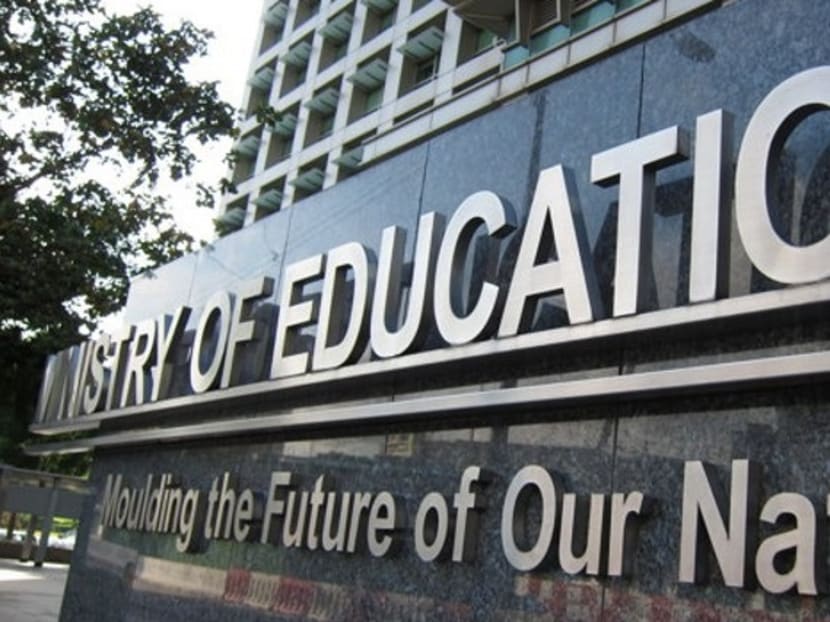School funding: Wrestling with a sense of entitlement
In the wake of the Ministry of Education’s (MOE) announcement regarding funding cuts for four independent schools, many people have expressed concerns that these cuts penalise students in elite schools without necessarily helping their less privileged counterparts. In my view, many of these concerns are unfounded.
In the wake of the Ministry of Education’s (MOE) announcement regarding funding cuts for four independent schools, many people have expressed concerns that these cuts penalise students in elite schools without necessarily helping their less privileged counterparts. In my view, many of these concerns are unfounded.
Opponents of the cuts argue that instead of raising standards across the board, MOE is simply bringing down elite schools by taking resources away from them. They also maintain that the quality of education for these bright students would be jeopardised.
For some reason, the alleged impact on the use of air-conditioning in independent schools has assumed a particular salience in the debate.
There have been various versions of the argument that reducing the use of air-conditioning for students in top schools would do nothing to improve the situation for their peers elsewhere.
One unspoken assumption under-lying these arguments is there is a direct, positive relation between amount of funding and quality of education.
FOCUS ON TEACHING, NOT FACILITIES
First, we ought to distinguish between “material” quality, which refers to facilities such as air-conditioning, swimming pools and performing-arts centres, and teaching quality, which encompasses teacher training as well as curriculum planning.
In addition, some top schools in Singapore offer global programmes that enable their students to travel abroad during the course of their study. Such bonus programmes may be considered to be enhancing the quality of education, but should not be seen as a core or integral component.
In my view, the quality of teaching, rather than the availability of good facilities and global programmes, should be the primary focus of our education system. Since many top schools already offer facilities that many other schools do not, it is reasonable for these top schools to economise their use of such facilities, especially those with significant operating costs, in order to cope with funding cuts and ensure teaching quality is not compromised.
In fact, it would be ideal if an arrangement could be made such that students in other schools could have access to facilities in top schools, such as their swimming pools and performing-arts centres. This would optimise the use of the facilities and allow a larger pool of students to benefit materially.
(Having said that, it is worth noting that MOE has been upgrading primary schools across Singapore with facilities such as performing-arts studios and experiential learning classrooms.)
FEELING ENTITLED
A more fundamental problem, which has been missed by much of the discussion thus far, concerns the problem of an “entitlement mentality” in students today.
Reducing air-conditioning usage in independent schools may not directly benefit students in other non-independent schools, but frugal, measured use would be more likely to teach students of the former not to take this privilege for granted and to cherish the luxuries they have.
Singapore does not “owe” well-performing teenagers the best education money can buy. These teenagers exist in the same society — the same ecosystem — as their peers and all have their part to play in our diverse and dynamic society.
I do not believe skilled exam-takers are automatically entitled to a bigger slice of the resource pie, nor is it a given that they will necessarily contribute in a more significant manner to Singapore society in the future.
The ideology of “meritocracy” for a long time has mandated that we invest heavily in our talented young. Yet, as various people have pointed out in recent years, it needs to be tweaked to take into account the uneven playing field where children from more well-to-do families receive advantages — such as tuition — that better prepare them for the education system.
The problem of this “entitlement mentality” has been raised by teachers and members of the public. A teacher from an independent school affected by the cut recently shared with me a telling anecdote.
“A car gave way to me as I was driving near the school, so I waved ‘thank you’ to the driver,” she said.
“One of my students witnessed this and asked why I had thanked the driver even though it was my right of way. ‘You didn’t have to say thank you — you were right,’ my student said. I told him just because I was right did not mean I could not be nice about it. Unfortunately, my student still felt that I had chi kui (Chinese for suffered a disadvantage).”
The teacher emphasised, however, that not all students share the same attitude that being in the “right” absolves one from courteous behaviour. An educator for 16 years, she understands the rationale behind the funding cuts for independent schools and even proposes that all scholarships be made means-tested, as this would take into account the financial background of a student’s family.
Singapore is suffering from growing socioeconomic disparities. Our education system, which has traditionally been an avenue for social mobility and national unity, ought to play a bigger role in bridging these divides.
A more equitable allocation of resources across all schools and a more concerted effort by independent schools to combat their students’ “entitlement mentality” are some of the first steps we can take towards a more cohesive and caring society.
ABOUT THE AUTHOR:
Koh Choon Hwee attended Bukit Panjang Primary School, Nanyang Primary School, Raffles Girls’ School and Raffles Junior College. She is now pursuing graduate studies in Beirut, Lebanon, on a scholarship awarded by the American University of Beirut.







